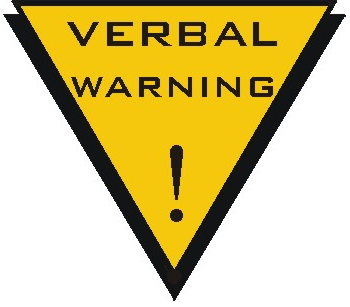Notwithstanding the provision of the Code of Practice on Grievance and Disciplinary Procedures as provided for by S.I. number 146 of 2000, the importance of having a well structured disciplinary procedure ensures employers are protected against disruptive and potentially dangerous employees who not only expose the employer to harmful ‘knock-on’ claims from disgruntled fellow employees but also from possible civil action in the courts arising from unfair or wrongful dismissals.
Applying written procedures will assist in this process and will ensure the employer is protected against all reasonable levels of exposure when applying a disciplinary procedure against disruptive employees. However, the purpose of this article is to provide a more comprehensive step-by-step approach to the application of the disciplinary procedure.
LEGISLATIVE FRAMEWORK

Whilst Statutory Instrument Number 146 of 2000 of the Industrial Relations Act, 1990 provides for the first time for a code of practice for Grievance and Disciplinary procedures, the voluntary nature of Irish industrial relations remains unaffected. Put simply, employers are not legally obliged to adopt or implement this code of practice. However, third parties and a court of law will consider the existence of the code, initiated by Ministerial order and its absence from a company handbook will be viewed negatively.
In addition, section 14 of the Unfair Dismissals Act 1977 requires that within 28-days of commencement of employment, employees must be informed of the procedure that would be used in the event of dismissal. Irrespective of the code of practice, the employer must lay down some basic parameters for dismissals.
The Unfair Dismissals Acts 1977-1993 are the legislative parameters from which employers must operate when considering disciplinary action, up to and including dismissal. The Acts do allow for dismissal on grounds of qualifications, incompetence and incapacity, so long as certain prerequisites are followed. However, this does not diminish the importance of adopting and adhering rigidly to a proper, structured disciplinary procedure.
Code of practice
The code of practice for Grievance and Disciplinary Procedures came into effect on May 26th 2000. The code contains general guidelines on the application of grievance and disciplinary procedures and aims to promote best practice in their application. As previously stated, employers are not legally obliged to implement this code of practice, however, should a claim be made against the employer in a third party or court of law, the code’s absence will be viewed negatively against the employer.
The code of practice suggests several steps in the disciplinary procedure which are designed to ensure procedural fairness as is required by the constitution vis-à-vis the principles of natural justice. In this regard, the code offers some generic suggestions on the investigation of an employee’s grievance or transgression and that the complaint or allegation be put to the employee concerned. In addition, the employee should have an opportunity to respond fully to such allegations or complaints and the employee be afforded the opportunity to be represented at all times. Finally, the code suggests that the employee has a right to a fair and impartial determination.
While the above suggestions form part of a non-obligatory code of practice, the principles of natural justice, as implied in the Irish constitution, are binding. Therefore, should an employer ignore or deviate from the aforementioned steps a claim could be made that the employer has infringed on the constitutional rights of the employee and have the disciplinary procedure declared illegal or the dismissal unfair.
THE DISCIPLINARY PROCESS
Normally the disciplinary procedure will include, in the first instance, an oral warning; followed by a first written warning; followed then by a second written warning and then finally dismissal. However, before dismissal the employer must be shown to have acted reasonably and fairly by only considering dismissal as the last resort. If possible, sanctions other than dismissal can include a transfer to another task or section of the company, demotion or some other appropriate disciplinary action short of dismissal.
It should be noted that employees may be suspended with pay pending an investigation. However, suspension without pay is only permissible after an employee has been dismissed but is appealing the dismissal decision.
The pitfalls associated with some of these steps, which can lead to the disciplinary process being abandoned, even in cases where its application is warranted, need some discussion.
(i) Verbal Warning
As is mentioned in the code of practice, employees should receive an oral warning for the first transgression. Indeed, in many cases most employers will issue an oral warning in the hope that this will result in improvement on the part of the employee. It is at this stage of the disciplinary process that the fatal flaws usually occur.
Issuing an oral warning, whilst unwritten, is nonetheless part of a formal process that has sanctions and conditions attached. The over-riding principle that is often ignored by employers is that the principles of natural justice apply from the very start to the very end of the disciplinary process.
Accordingly, before issuing an oral warning, a meeting should be arranged with the employee at an appropriate time and location and that the employee be advised of the nature of the meeting and that he/she should bring a colleague or other representative. It is important to note here that even though an employer might not recognise a trade union, the employer is obliged to allow an employee bring a trade union official as his/her representative. Should the employer refuse to allow the employee bring a trade union official, the employer will be infringing on the employee’s constitutional rights and the disciplinary process is in danger of being deemed to be unfair.
At the meeting, the employee should be fully advised of the nature of the complaint and given details of the complainant(s) and/or transgressions. The employee must be invited to respond and explain where possible the accusations/allegations. It is imperative that during this meeting that no judgemental remarks are made and that the employee is assured that the process is fair and impartial. In addition, the role of the employee representative should also be clearly understood from the outset. The representative’s function is to minute and bear witness to the proceedings and it is not that of adjudicator or spokesperson for the employee. Whilst the employer is obliged to ensure that the principles of natural justice are upheld a similar obligation is also conferred on the employee and his/her representative. In other words, any attempt to frustrate the disciplinary process by any party may result in the process being declared null and void if the core principles are ignored. This will not serve the interests of the employer or the employee. In addition, the employee’s representative cannot be anyone who is not connected with the enterprise, such as family or friends unless they are also employees of the employer.
Should the process encounter difficulties at the oral warning stage due to the actions or inactions of the employee or his/her representative, the employer may be forced to issue a letter to the employee confirming that the disciplinary process has begun and that he/she has received a verbal warning. It should be stated at the beginning of the letter that it is not a first written warning but rather a confirmation letter following the meeting between the employer and employee at which the oral warning was issued.
This letter must also contain the remedies to improvement and a reasonable time frame for this to occur. The letter must state that failure to comply with the terms laid out will result in the progression to the second stage of the disciplinary procedure, which could ultimately result in dismissal. In addition, the letter should inform the employee that the warning will remain on his/her personnel file for a period of 3-months, after which time, if there is no further warning or lack of improvement, it will be removed permanently.
The law requires that the employee be made aware at each stage of the process of the likely sanction, including the possibility of dismissal.
Depending on the severity of the allegation/complaint, employees may be suspended with pay during an investigation. The same process as above must be followed with the employee being informed of the duration of the suspension. It is imperative that the investigation is held within a reasonable time frame and that the employee is not suspended indefinitely.
(ii) First written warning
Once the disciplinary procedure has commenced the employer should assist the employee to improve his/her performance or conduct. All reasonable steps should be taken by the employer, such as retraining or relocation and details should be kept on the progress the employee is making within the 3-month monitoring stage mentioned in the oral warning. However, caution should be exercised when considering relocation as this might infringe on the contract of employment, especially if the proposed relocation is some distance from the employee’s current place of work.
If however the employee does not improve in performance or conduct and so long as the transgression occurs within the 3-month period mentioned at the oral warning stage, the employer can proceed to issue the first written warning. It should be noted that the progression to the first written warning can occur at any time during the 3-month monitoring period issued at the oral warning.
Again, the employee should be invited to attend a meeting, with a representative of their choice. Details must be given of the repeat transgression(s) and the employee afforded the opportunity to respond. The employee should be informed that as no improvement has occurred, a written warning will be issued and retained for another 3-months.
The written warning must specify the nature of the transgression or poor performance and clearly state that as a result of the employee’s failure to improve following the oral warning, that the letter is the first written warning. In addition, the letter must also suggest remedies such retraining and clearly indicate the likely sanctions if no improvement occurs within the 3-month monitoring period, up to and including possible dismissal.
Whilst the employer must ensure that all reasonable measures are taken to assist the employee improve his/her performance or conduct, the employer must also be cognitive of the duty of care he/she has to other employees.
(iii) Second written warning
Should no improvement in performance or conduct occur during the 3-month monitoring period referred to in the first written warning, the employer may issue a second written warning. The exact same procedure as the first written warning is followed with the monitoring period increased to 6-months.
(iv) Final written warning
In the event that no improvement occurs the employer may be forced to issue a final written warning. Again, the same procedure as in the first and second written warning is followed, with the monitoring period increased to 12-months.
This letter is probably the most delicate of all, as it will clearly state that if there is failure to improve or a repeat transgression within a 12-month period, then the employee will be dismissed.
As this final written warning letter is the precursor to a possible dismissal, it should be worded extremely carefully. Only the persistent transgression or poor performance, as mentioned consistently from the oral warning onwards, should be referred to. No other peripheral allegations or complaints should be included.
(v) Dismissal
The final stage in the disciplinary procedure is dismissal should the employee fail to improve or if there are further transgressions.
A meeting with the employee should be convened and again the employee’s representative should be present. The employer should remind the employee of the previous warnings and the fact that he/she was informed in the final written warning that failure to improve would result in dismissal. The employer must inform the employee that as a result of the repeated transgressions or failure to improve, his/her employment is terminated in accordance with the disciplinary procedure. In addition, the employee should be advised that he/she can appeal the dismissal decision within 14-days.
A letter stating the previously cited grounds for dismissal, must be issued to the employee and again advising him/her that an appeal against the dismissal decision can be made within 14-days of the date of termination of employment.
Finally, it is important to bear in mind that the sanctions in a disciplinary process must be proportionate to the transgression or poor performance. An element of common sense will apply, however, in certain circumstances an employee may be dismissed summarily without recourse to the above procedure. Such dismissals are usually attached to acts of gross misconduct, such as theft, but again extreme caution is urged before summarily dismissing an employee. Controversially, even in cases of gross misconduct, the employer must pay the employee their notice period.
AND FINALLY…

Unfortunately writing line is no cure for managing discipline!
Under Irish law, all dismissals are deemed to be unfair, unless proved otherwise. The burden of proof in the case of a dismissal of an employee that it was fair rests with the employer. However, adhering to a basic disciplinary procedure, as suggested in the code of practice, will provide a sound basis from which to deflect any potential appeals or claims of unfair dismissal.
Third parties and the courts will view favourably the adherence to and application of a disciplinary procedure that incorporates the basic principles laid out in the code of practice.
It is vital that when applying any procedure, especially disciplinary or grievance, that consistency is applied fairly and evenly throughout the company. If an employee is dismissed or even placed on the disciplinary procedure when another was not, the employer is exposed to possible claims of unfair dismissal or constructive dismissal respectively.
In the event that a dismissed employee pursues a claim for unfair dismissals through the Employment Appeals Tribunal or civil courts, the forms of redress are (i) re-engagement, (ii) reinstatement or (iii) compensation. The employee can only be awarded a maximum of 2-year’s salary if a dismissal is declared unfair under the Unfair Dismissals Acts, 1977-1993.
Given the propensity for litigation in Ireland, whether genuine or vexatious in nature, Irish businesses face a hostile environment with crippling insurance and employment related costs. Adopting and adhering to sound policies and procedures will ensure that both the employer and his employees are protected against damaging claims that jeopardise both the enterprise and livelihoods of all.
For further information on managing performance issues mail info@kala.ie or call 01 406 14 75.







